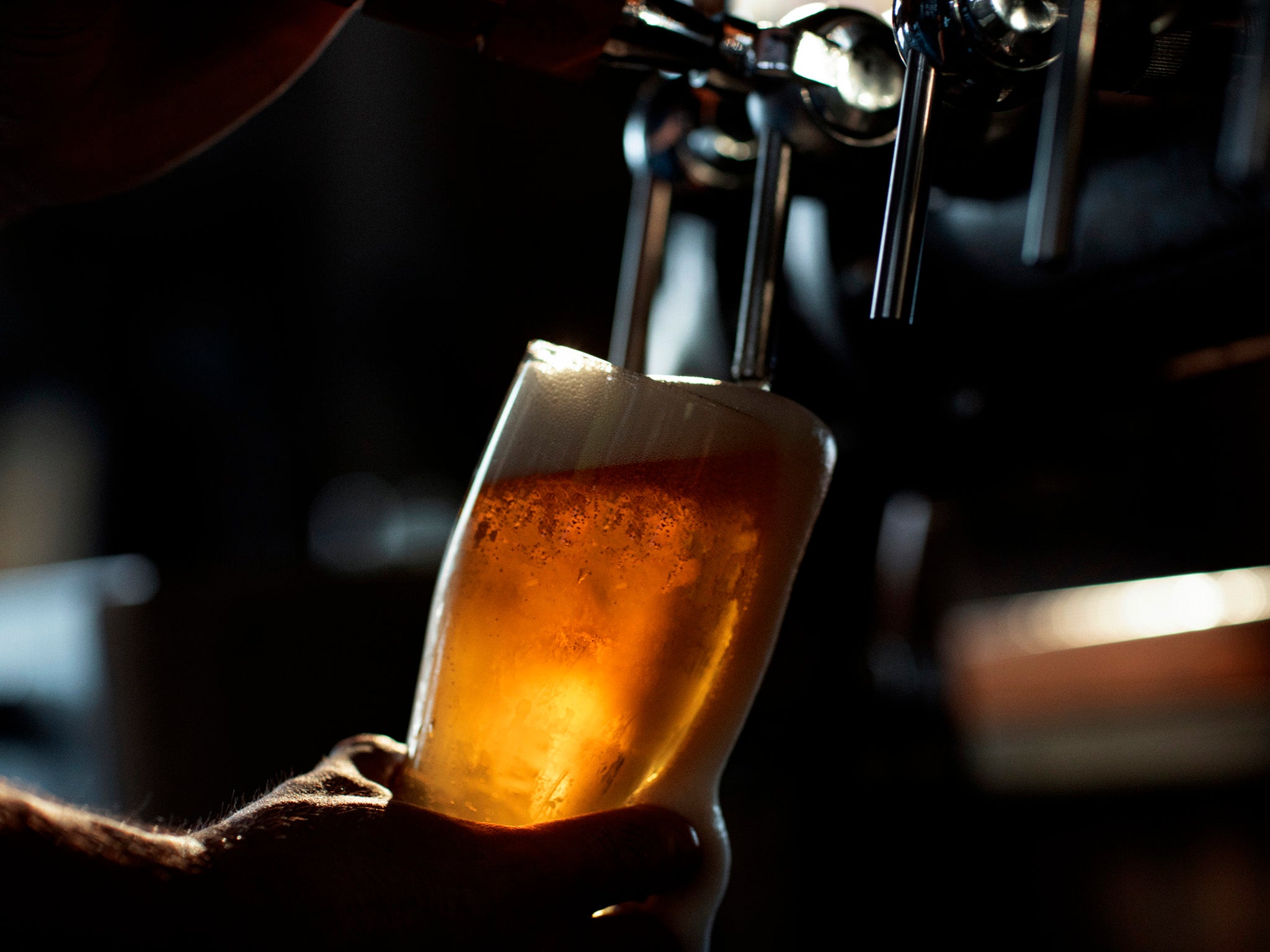Cutting out last drink of night ‘could improve brain health’, study suggests
Study finds alcohol has ‘exponential’ neurological effect

Your support helps us to tell the story
From reproductive rights to climate change to Big Tech, The Independent is on the ground when the story is developing. Whether it's investigating the financials of Elon Musk's pro-Trump PAC or producing our latest documentary, 'The A Word', which shines a light on the American women fighting for reproductive rights, we know how important it is to parse out the facts from the messaging.
At such a critical moment in US history, we need reporters on the ground. Your donation allows us to keep sending journalists to speak to both sides of the story.
The Independent is trusted by Americans across the entire political spectrum. And unlike many other quality news outlets, we choose not to lock Americans out of our reporting and analysis with paywalls. We believe quality journalism should be available to everyone, paid for by those who can afford it.
Your support makes all the difference.Cutting out the last drink of the night could substantially improve brain health, a new study suggests
A study of more than 36,000 adults suggests the negative effects of alcohol get stronger drink by drink.
Dr Remi Daviet, a professor at the University of Wisconsin and the study's lead author, said: “There is some evidence that the effect of drinking on the brain is exponential.
“So, one additional drink in a day could have more of an impact than any of the previous drinks that day. That means that cutting back on that final drink of the night might have a big effect in terms of brain ageing.”
Previous research has shown that heavy drinkers have alterations in brain structure and size that are associated with cognitive impairments.
But the new study found that even modest levels of drinking – a few beers or glasses of wine a week – may also risk damaging the brain.
The link grew stronger at higher levels, according to the study.
While strong evidence exists that heavy drinking causes changes in brain structure, including major reductions in grey and white matter, earlier studies have suggested that moderate levels of alcohol consumption may not have an impact, or even that light drinking could benefit the brain in older adults.
The Wisconsin study used data for 36,000 British adults from the UK Biobank, a database of genetic and medical information.
Doctor Gideon Nave, a co-author and assistant professor of neuroscience at University of Pennsylvania, said: “The fact that we have such a large sample size allows us to find subtle patterns, even between drinking the equivalent of half a beer and one beer a day.”
As an example, in 50-year-olds, as average drinking among individuals increases from one alcohol unit (about half a pint of beer) a day to two units – a pint of beer or a glass of wine – there are associated changes in the brain equivalent to ageing two years.
Dr Nave said: “The people who can benefit the most from drinking less are the people who are already drinking the most.”
Going from two to three alcoholic units was like ageing the brain by three-and-a-half years.
Professor Henry Kranzler, who directs the Penn Center for Studies of Addiction, said: "These findings contrast with scientific and governmental guidelines on safe drinking limits.”
The NHS recommends no more than 14 units a week on a regular basis, but cautions there is no completely safe level of drinking.
The study was published in the journal Nature Communications.



Join our commenting forum
Join thought-provoking conversations, follow other Independent readers and see their replies
Comments